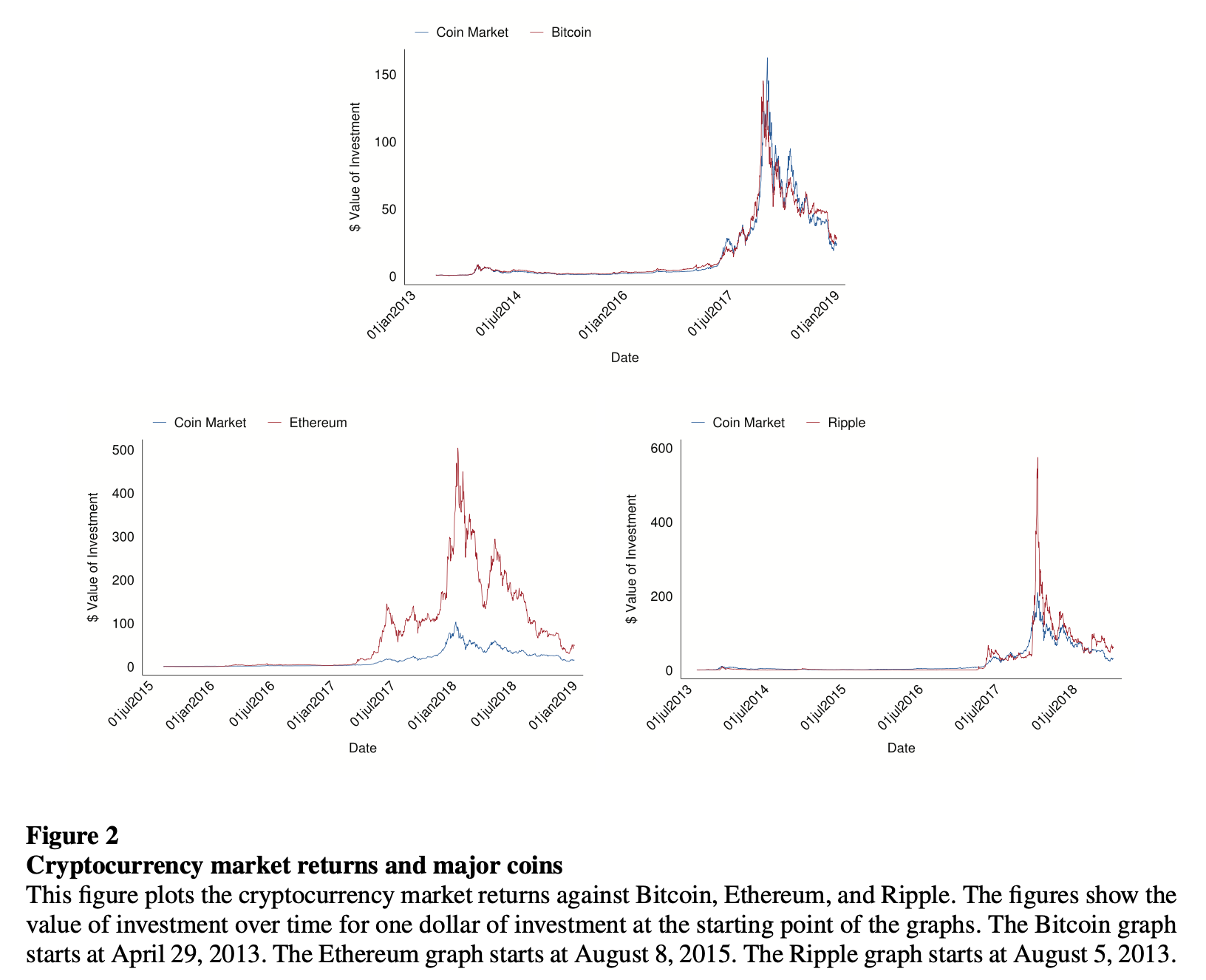Key Performance Metrics
📊 How Well Does This Strategy/Model Perform?
- Annual Sharpe Ratio: ~1.00
- Annualized Return: ~245%
💡 Takeaway:
Crypto returns are highly volatile but offer extreme upside. Predictability comes from network growth, momentum, and attention.
Key Idea: What Is This Paper About?
The paper identifies core return drivers in crypto: network adoption, investor attention, and momentum. It rejects production cost-based models and finds little connection to traditional asset classes. It’s the first empirical asset pricing paper for the crypto space.
Economic Rationale: Why Should This Work?
Cryptocurrency prices respond to network externalities—more users increase perceived utility and value. Investor attention mechanisms (like Google searches or tweets) signal sentiment and speculative demand, driving short-term price continuation.
📌 Relevant Economic Theories and Justifications:
- Network Effects: User adoption creates positive feedback on value (Cong, Li & Wang, 2019).
- Attention-Induced Momentum: Similar to De Long et al. (1990); limited investor processing power causes delayed price reaction.
- Martingale Hypothesis Rejected: Prices are predictably affected by behavioral and adoption-based variables.
📌 Why It Matters:
Helps design trading strategies using real crypto-specific factors instead of relying on traditional equity models.
How to Do It: Data, Model, and Strategy Implementation
Data Used
- Data Sources: Coinmarketcap, Google Trends, Blockchain.info, Coinmetrics.io
- Time Period: Jan 2011 – Dec 2018
- Asset Universe: 1,707 cryptocurrencies with market cap > $1M
Model / Methodology
- Regression and VAR analysis on return predictability
- Constructed crypto-specific factors:
- Network Growth (wallets, active addresses, transactions, payments)
- Production Costs (electricity & mining rig prices)
- Investor Attention (Google/Twitter metrics)
- Momentum (time-series of returns)
Trading Strategy (Constructed from Insights)
- Signal Generation:
- Long if past 1-week return is high (top tercile)
- Long if investor attention (Google search spike) is high
- Avoid periods of high “Bitcoin hack” search frequency
- Portfolio Construction: Value-weighted index of eligible coins
- Rebalancing Frequency: Weekly
- Holding Period: 1–4 weeks
Key Table or Figure from the Paper

📌 Explanation:
- Plots cumulative returns of the overall crypto market alongside Bitcoin, Ethereum, and Ripple.
- Shows strong comovement among major coins and explosive growth compared to traditional assets.
- Visual proof that a diversified crypto index tracks similar trends as large coins, validating the use of a broad coin market index for strategy development.
Final Thought
💡 Momentum and attention—not production costs—explain crypto returns. 🚀
Paper Details (For Further Reading)
- Title: Risks and Returns of Cryptocurrency
- Authors: Yukun Liu, Aleh Tsyvinski
- Publication Year: 2021
- Journal/Source: The Review of Financial Studies
- Link: https://www.jstor.org/stable/10.2307/48616705
